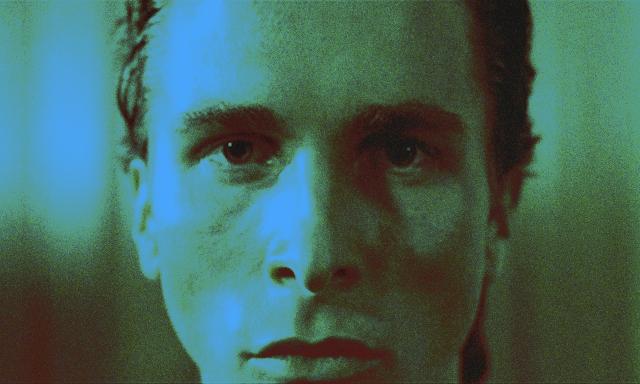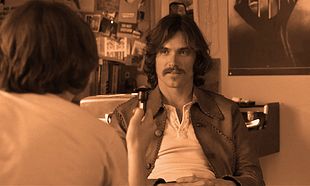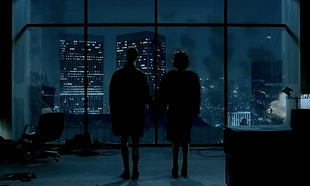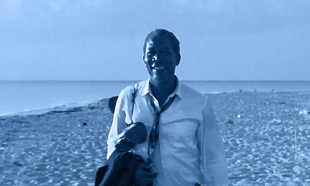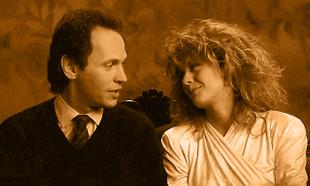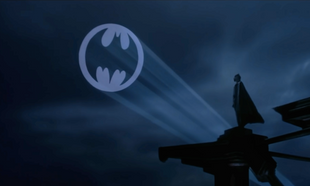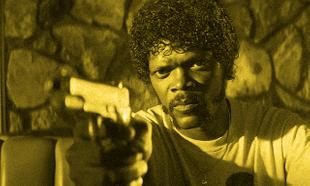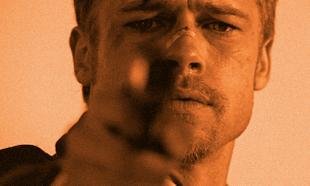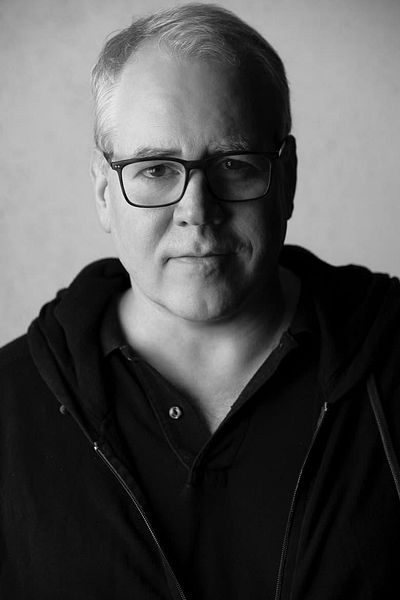The Final Scene looks at the last few minutes of some of the most well-known movies of the past fifty years. This week, it's Mary Harron's adaptation of Bret Easton Ellis' horror-satire, 'American Psycho'...
In a way, it's kind of funny that so much of 'American Psycho' is drilled down to the ending and whether any of Patrick Bateman's heinous crimes were real or not, when really, it's not important whether they're real or not. Christian Bale's performance in the scene is electric; he's all bug-eyed and crazy, like someone who's actually gone on a spree and needs someone to stop him.
After he confronts his lawyer, who calmly tells him that the murders Bateman believes he's carried out are not real, it then becomes clear to the audience that Bateman's psychosis has been reflected back at him - and he can't take it. He takes a swig of his drink, simply says "Whatever" to his friend, and then gives a haunting internal monologue about the nature of his confession.
Really, that's what 'American Psycho' is driving at so forcefully throughout the movie and lining up in the ending. That all of the violence throughout 'American Psycho', all of the horror that Bateman has inflicted on men and women, means nothing because whether it's real or not, he escapes it so easily because of the culture around him. The world around him, the people at the table beside him, is so wrapped up in falsehood that it's become almost as inhuman as he is.
That's why so many of the characters mistake Patrick Bateman for Paul Allen, or Marcus Halberstram, or even just someone else entirely. Each and every one of them work so hard to become perfect, yet there is nothing distinguishing about any of them at all. When they're confronted with the truth, everyone stares at Bateman blankly.
As he tries to tell his girlfriend Evelyn, played by Reese Witherspoon, that he no longer cares about her, that he needs to kill people, she barely registers it and simply suggests that they not talk about the wedding. When he tells her that he finds her to be "not terribly important", she's utterly bewildered by it and describes him as "inhuman".
Yet, earlier, when Bateman gives a speech about empathy and extols the virtues of "less materialism" and "a return to traditional moral values" at a trendy restaurant, everyone thinks he's in touch with humanity. The satire lies in the very next scene, when Bateman pulls a wad of cash out of an ATM and then begins to plot his first murder.
The ending is the sharpest example of the two-faced nature of the society he lives in.
We, the audience, know that he's murdered dozens of people, that he killed Paul Allen by cutting his body into ribbons with an axe whilst Huey Lewis & The News played in the background - yet, his lawyer tells him that's "simply not possible."
Whether his lawyer really did have dinner with Allen in London two days ago is irrelevant - Bateman's admission of guilt, his exposure of his empty-hearted violence, runs contrary to what everyone else is supposed to do.
When we see Bateman take his seat, Ronald Reagan's speech concerning the Iran-Contra crisis plays out on a television set. This is another example of the two-faced nature endemic in American culture. Reagan, who built his career on honest American values, is caught in the middle of a crisis where his administration sold arms to Iran to fund the horrors caused by ultra right-wing military factions in Nicaragua.
Bryce, Justin Theroux's character, refers to Reagan as "a harmless old codger", but on the inside lies something else. All of which is met with a general derision from the table, and Bateman's resignation of his fate - that inside, the internal truth, doesn't matter.
Whether he killed those people or not doesn't matter, because he can maintain a veneer of normalcy and that's enough in this world. Whether that makes human or not is left up to the audience.
